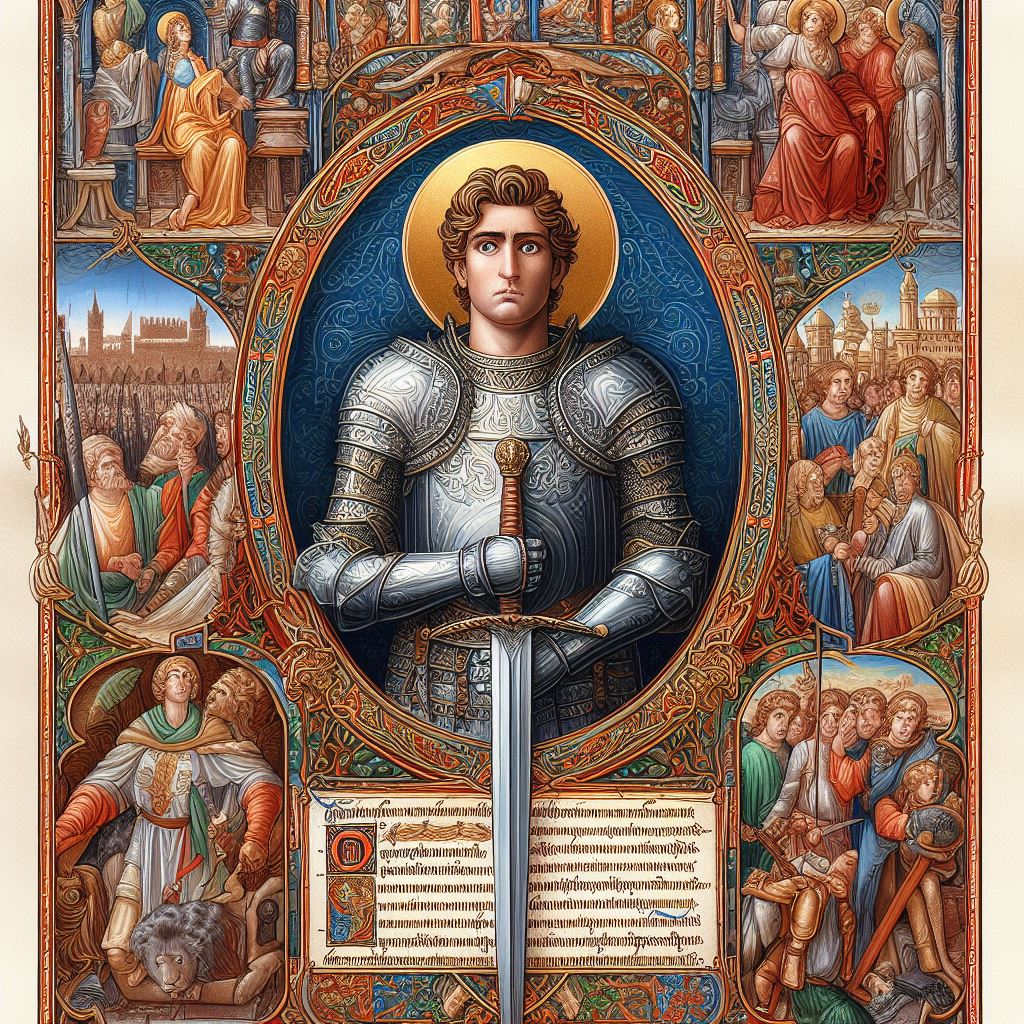Alexander the Great, a name that resonates through the annals of history, is often hailed as one of the most formidable leaders the world has ever seen. His conquests stretched from Greece through Asia Minor, Egypt, Persia, and into India. But was he truly “great”?
The article “Was Alexander The Great Really Great?” delves deep into this question, shedding light on the multifaceted nature of his legacy. While his unparalleled military achievements and the spread of Hellenistic culture stand as testaments to his greatness, they are juxtaposed against the immense costs of his ambitions.

Thousands lost their lives, cultures were uprooted, and the aftermath of his reign saw a world in turmoil. This introduction seeks to explore this duality, setting the stage for a nuanced understanding of a man who, for better or worse, changed the course of history.
Was Alexander The Great Really Great Article Answers
| Question | Answer |
|---|---|
| Select the letter of the correct answer. What is This Article primarily about? | Alexander the Great and other famous leaders, who made significant historical achievements that came with a heavy price. |
| Based on information in the Article, how were Alexander the Great and Cyrus the Great similar? | They both killed a lot of innocent people in their quests to conquer territories. |
| Which is the closest synonym for the word savvy? | shrewd |
| Which statement is an opinion? | Alexander the Great deserves his label of greatness because he never lost a single battle. |
| Which question is not answered by the Article? | What were the battle tactics and strategies that Alexander the Great used? |
| Which is the closest antonym for the word renowned? | obscure |
| This Article would be most useful as a source for a student research project on ___________. | great leaders who did terrible things. |
| According to the Article, what is one reason why Alexander is called “the Great”? | Alexander spread culture, language, and knowledge across the ancient world. |
Alexander’s Achievements
Alexander the Great’s reign is marked by a series of unparalleled accomplishments that have etched his name into the annals of history.
- Expansion of the Macedonian Empire: Starting as the King of the small state of Macedonia, Alexander embarked on a series of military campaigns that saw the boundaries of his empire stretch from Greece in the west to India in the east. This vast expanse covered three continents – Europe, Asia, and Africa.
- Establishment of Cities: As a testament to his vision of cultural integration and urban development, Alexander founded over 20 cities during his conquests. The most renowned of these is Alexandria in Egypt, which became a beacon of Hellenistic culture, knowledge, and trade.
- Cultural Unification: One of Alexander’s most enduring legacies is the ‘Hellenistic Era’. By merging Greek culture with those of the conquered lands, he fostered an age of incredible cultural exchange, art, and scientific growth. This period saw the blending of Greek, Persian, Egyptian, and other cultures, leading to advancements in various fields.
- Military Prowess: Alexander’s military strategies and tactics are studied even today. He remained undefeated in battle, a testament to his genius as a military commander. His phalanx formations, combined with the use of cavalry, allowed him to overcome armies much larger than his own.
The Costs of Greatness
While Alexander the Great’s achievements are celebrated, it’s crucial to also recognize the significant costs associated with his quest for greatness. His rapid expansion and unyielding ambition came with repercussions that affected both his contemporaries and the subsequent course of history.
- Countless Lives Lost: Alexander’s military campaigns, though marked by strategic brilliance, resulted in the loss of countless lives. Both soldiers and civilians bore the brunt of his conquests. Cities that resisted his rule, like Tyre and Thebes, faced severe destruction and mass slaughters.
- Forced Assimilation and Cultural Erasure: While the Hellenistic era is praised for its cultural exchange, it also had darker aspects. In his bid to unify his vast empire, Alexander often imposed Greek customs and culture on the conquered people, leading to the erasure of local traditions and identities in certain regions. This top-down approach to cultural integration sometimes led to resentment and resistance among the local populations.
- Posthumous Instability: Alexander’s sudden and unexpected death at a young age left a power vacuum in the vast empire he had built. Without a clear successor, his generals, known as the Diadochi, engaged in a series of conflicts to gain control. This period of infighting and fragmentation led to the eventual disintegration of the unified empire he had established.
In reflecting on Alexander’s legacy, it becomes evident that greatness often comes with significant costs. While his achievements are undeniable, the consequences of his actions, both intended and unintended, shaped the trajectory of regions far beyond Macedonia and continue to be subjects of historical debate.
Comparisons with Other Leaders
Throughout history, numerous leaders have embarked on quests for power, expansion, and legacy. Alexander the Great, while unique in many respects, shares parallels with other iconic figures. These comparisons shed light on the complexities of leadership and the perennial challenges of wielding power responsibly.
- Cyrus the Great: Like Alexander, Cyrus the Great of Persia is another figure renowned for his vast territorial conquests. Both leaders are credited with forging empires that spanned multiple continents and diverse cultures.
However, their paths to greatness were also marred by bloodshed. While Cyrus is often lauded for his tolerant approach to the conquered kingdoms, allowing them to retain their customs and religions, he, like Alexander, was responsible for the deaths of many during his military campaigns. - Ambition and Ethical Considerations: Alexander’s relentless ambition, while leading to unparalleled successes, also raised ethical dilemmas. His decisions, particularly in warfare, often tread the fine line between strategic necessity and moral responsibility. This duality is not unique to Alexander. Many leaders, past and present, grapple with the balance between achieving their objectives and upholding ethical standards.
The conquests of leaders like Julius Caesar, Genghis Khan, and Napoleon Bonaparte, among others, echo similar themes of ambition, achievement, and the ethical costs associated with them. - Legacy Beyond Conquests: While military achievements are often the most highlighted aspects of these leaders’ legacies, their contributions to culture, administration, and governance are equally significant. For instance, while Alexander spread Hellenistic culture, Cyrus the Great’s administration principles laid the foundation for the Achaemenid Empire’s governance.
These leaders, in their ways, influenced not just the territories they conquered but also the broader course of world history.
In drawing comparisons with other leaders, it becomes evident that the challenges, dilemmas, and responsibilities of leadership remain consistent across eras and civilizations. The stories of these leaders serve as both inspirations and cautionary tales for future generations.
Legacy and Public Perception
Alexander the Great’s life and reign have left an indelible mark on history, shaping the course of nations and influencing countless generations. However, like many historical figures of his stature, his legacy is a subject of intense debate and varied interpretations.
- The Debate Over “the Great”: The title “the Great” is not merely an acknowledgment of Alexander’s military achievements but also a testament to his influence on culture, governance, and global interactions. However, this title is contentious.
While some view him as a visionary leader who bridged East and West, others see him as a ruthless conqueror whose ambitions led to widespread suffering. The debate underscores the complexities of his character and reign. - Impact on the Hellenistic Period: Alexander’s conquests laid the foundation for the Hellenistic era, a period marked by the fusion of Greek and Eastern cultures. Cities like Alexandria became centers of learning, art, and commerce. The spread of the Greek language during this period facilitated communication and exchange across vast territories.
Moreover, the political landscape was transformed as former parts of his empire, such as the Seleucid, Ptolemaic, and Antigonid kingdoms, emerged as powerful entities. - Modern Interpretations: In contemporary times, Alexander is both celebrated and criticized. Historians, scholars, and enthusiasts continue to dissect his decisions, seeking to understand the man behind the legend.
Modern media, including films, books, and documentaries, offer varied portrayals, from the strategic genius with a vision for a united world to the flawed hero consumed by hubris. These interpretations reflect contemporary values and the ever-evolving nature of historical analysis. - Influence on Leadership Studies: Alexander’s leadership style, strategies, and decisions are subjects of study in academic and corporate circles. His ability to motivate, his visionary approach, and his adaptability in diverse cultural contexts offer lessons for modern leadership.
However, his flaws and controversial decisions also serve as cautionary tales about the pitfalls of unchecked ambition and power.
In conclusion, Alexander the Great’s legacy is multifaceted. While his military conquests are undeniable, it’s his broader impact on culture, governance, and global interactions that cements his place in history.
The debates and discussions surrounding his life are a testament to his enduring relevance and the complexities of historical interpretation.
Additional Resources
- Alexander the Great | Biography, Empire, Death, & Facts
- This resource from Britannica provides a comprehensive overview of Alexander the Great’s life, his consolidation of the empire, and his various achievements and challenges.
- Alexander the Great (article) | Khan Academy
- Khan Academy offers an article that touches upon Alexander’s life, his teachings, and his influence on the regions he conquered.
- Alexander the Great – National Geographic Society
- National Geographic provides insights into Alexander’s early life, his conquests, and the cities he established, including the famous city of Alexandria in Egypt.



